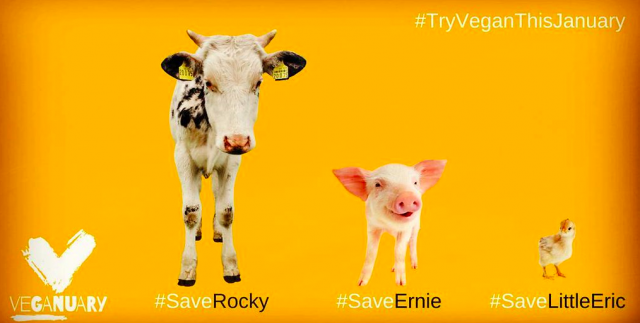Campaign of the month – Veganuary

Last month 400,000 took part in Veganuary, an impressive 60% increase since the previous January.
I recall being a vegetarian in the 1990s when many people considered a meat-free diet to be faddy and unsustainable. For many back then, the notion of attempting to have an entirely plant-based diet would have seemed impossible.
So what has changed and what is behind the behavioural shift towards veganism?
A quick look at behaviour change models such as the Behavioural Insights Team (BIT) EAST framework shows it’s ticking all the boxes…

It’s Easy
The framework tells us to ‘make it easy’ for people to adopt a new behaviour. There are now few major high-street food outlets or restaurants that don’t offer at least one option for vegans, making it easier than ever to find plant-based food wherever you are.
It’s Attractive
In the last few years concern for the environment has been racing up the agenda. As we learn more about the environmental impact of farming practices, ditching animal products becomes ever more attractive for the environmentally conscious. And with emerging evidence proclaiming the health benefits of veganism, it is also becoming more attractive to those trying to adopt a healthier lifestyle.
Whether you care most about health, the environment or animals the fact there are now multiple arguments for veganism makes it more attractive to a wider audience than ever before.

It’s Social
The increase in appealing vegan options is happening because of a change in demand. The food industry is responding to what consumers want. And consumers are responding to signals they see around them: if you believe more people like you are going vegan, you’re more likely to see that as an emerging social norm. With any movement, there’s a tipping point at which it starts to snowball, partly because people like to follow the herd. It feels like veganism has passed that tipping point over the last few months.
It’s Timely
Veganuary is a perfect time to join the movement, but it isn’t asking you to commit to veganism forever. It’s a set, finite time period for people to give it a try, nudging them gently towards the idea of making a longer-term commitment to veganism.
So Veganuary ticks all the boxes for behaviour change according to the EAST framework. But is it sustainable and will all of the 400,000 who took part stay meat free forever? Perhaps not.

Veganism is at the more extreme end of a spectrum and committing to a plant-based diet for life may be a step too far for many. However, Veganuary has opened people’s eyes to alternatives to animal products and may well nudge participants and non-participants alike to adopt a more flexitarian approach to eating, making the concept a great lever for changing behaviour.
